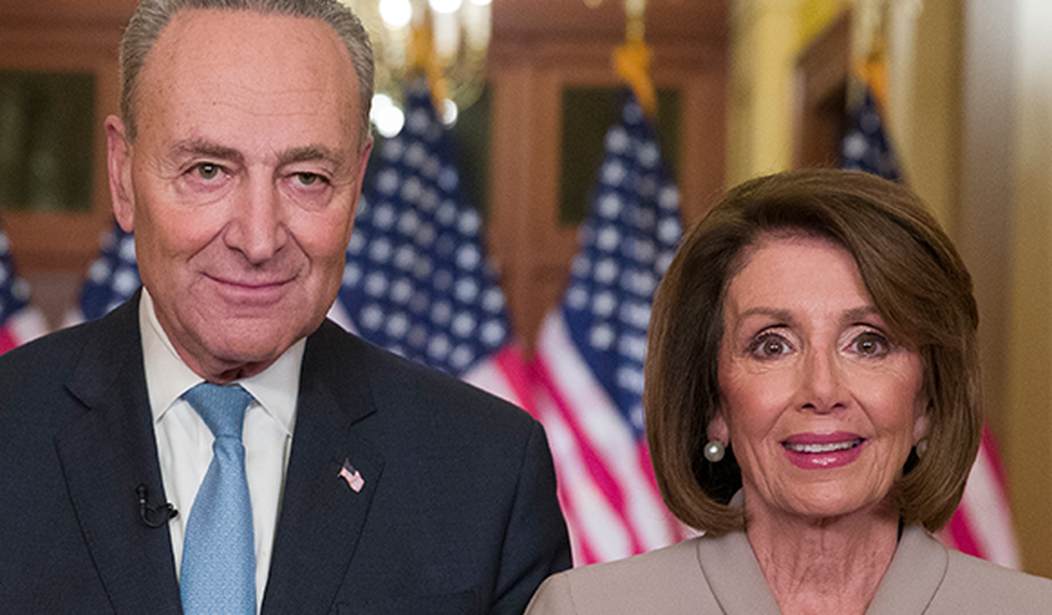If the final election returns, when they finally come in, match the current polls, Joe Biden's Democrats will win a trifecta: the White House and majorities in both houses of Congress.
Biden currently leads Donald Trump 51% to 44% in the RealClearPolitics average of recent polls and leads by a smaller margin of 49% to 46% in six target states. Current polling shows Democrats leading in races that would give them a 51-49 majority in the Senate, and they seem well positioned to hold their majority in the House.
Of course, those numbers are not etched in stone. Plenty of poll numbers are within the margin of error, and some may turn out to be even further off the final results, as in the 2016 presidential race and in the last three Senate cycles.
Still, it's worth pondering what a Democratic trifecta would mean -- and how unusual it would be. You would think that, in a country where people increasingly vote straight tickets, one-party dominance of the federal government would be common. But the electorate is so closely divided between the two historically ancient parties that we have ended up with divided government more often than not.
Over the last half-century, since the last horrifyingly turbulent presidential election year, 1968, Democrats have held the White House and both houses of Congress for only eight years (during Jimmy Carter's presidency and the first two years of Bill Clinton's and Barack Obama's), and Republicans have held them only six and a half (during most of George W. Bush's presidency and the first two years of Donald Trump's).
Recommended
So, we've had divided government 72% of the time and one-party control only 28% of the time.
Why is undivided government so uncommon? Why doesn't it last very long?
The short answer is that presidents and parties make mistakes and overreach. As a result, predictions of long-term party majorities for either party have proven unfounded.
Republicans have lost control because of mistakes, Democrats because of ideology. The Bush Republicans lost in the 2006 midterms because of perceived failure to prevent chaos in New Orleans and Iraq. Trump Republicans lost their control in 2018 because of upscale suburbanites' distaste for an arguably norm-breaking president. Democrats lost their trifectas in 1994 and 2010 by large margins after pursuing big-government policies that aroused vehement opposition.
Both involved the health care issue. Polls show voters constantly griping about health care costs but also fiercely opposing change in current arrangements. That helps explain why voters opposed Obamacare in 2010 and so long as Obama was president but, once Trump took office, opposed Republicans' proposals to repeal or modify it.
Up through the 1990s, divided government prevailed, with a perceived Republican lock on the presidency and an apparently eternally Democratic House of Representatives. Bill Clinton and former House Speaker Newt Gingrich changed that and proceeded to forge policy compromises that arguably reformed health care and balanced the federal budget -- until the Monica Lewinsky scandal broke.
Since then, bipartisanship has faded, as each party has some reason to hope that the next election, or the one after that, will give them the trifecta and let them pass the policies of their dreams.
So, George W. Bush got a few crucial Democratic votes on taxes and Iraq but none on Social Security. Barack Obama, having passed the stimulus and Obamacare with Democratic supermajorities, spurned the Simpson-Bowles reforms and a budget deal. In 2017, Trump accepted then-House Speaker Paul Ryan's tax package but was blocked from Obamacare "repeal" by then-Sen. John McCain's last-minute switch.
In this year's campaign, the rally-loving Donald Trump hasn't reached out to the voters his party lost in 2018, and the basement-lodged Joe Biden hasn't done much to attract those his party lost in 2016.
Biden and Democratic Senate candidates have dodged commitments on Supreme Court packing and the Green New Deal, which left-wing Democrats are pushing but most voters oppose. They talk vaguely about altering health insurance policy, which has proved unpopular for administrations of both parties. As have the tax and spending increases, which they, like past Democrats, have proposed.
The Biden campaign's TV ads have promised a return to serenity after the turmoil of the Trump years. But past Democratic trifectas have produced turmoil of their own, as the Alexandria Ocasio-Cortezes of those days sought bigger government policies and backbench Republicans have vociferously opposed them.
If Democrats win the trifecta the polls say they're headed for, they may find it to be as turbulent and short-lived as both parties' trifectas in the past half-century. Or that voters, with a seeming distaste for any trifecta, will veer away from the polls' path and deny Democrats one this time.
Michael Barone is a senior political analyst for the Washington Examiner, resident fellow at the American Enterprise Institute and longtime co-author of The Almanac of American Politics.

























Join the conversation as a VIP Member